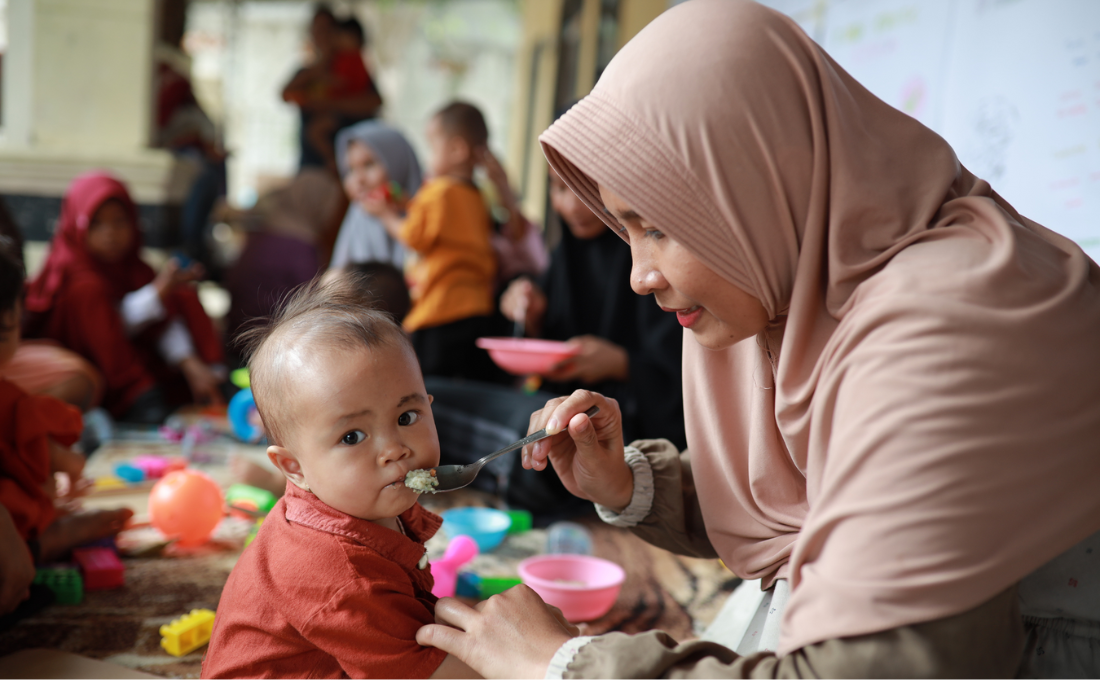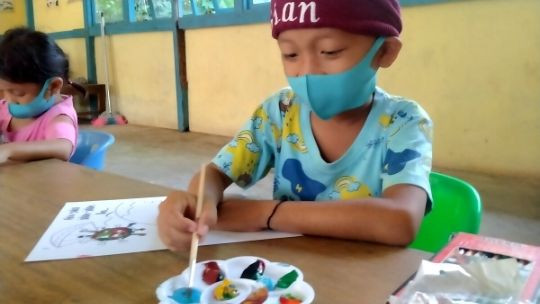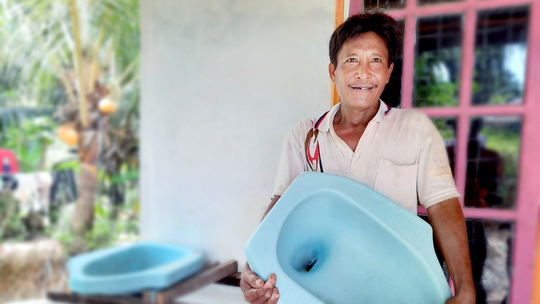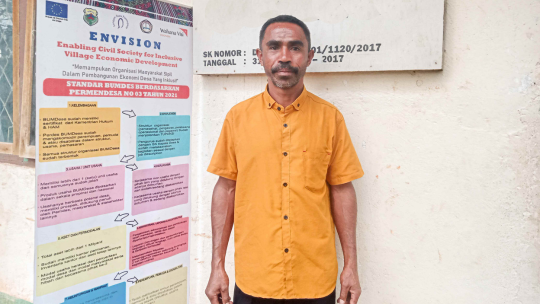Pos Gizi DASHAT, Real Action for Stunting Prevention

Many factors influence a child's growth from birth, such as a nutritious diet, age-appropriate stimulation, and parenting styles from parents, families, and caregivers. External support also plays a role whether a child will grow up to be healthy, resilient, and capable of becoming a qualified future generation.
Stunting remains a significant concern in Indonesia as it can hinder national development. If stunting rates remain high, the quality of future human resources may be compromised. According to the 2023 Indonesia Health Survey (SKI), the prevalence of stunting in Indonesia is 21.5%. Although this is a decrease from the previous year, it still does not meet the WHO standard of 20%.
Efforts to accelerate stunting reduction have been and continue to be carried out by the government at both the national and village levels. One specific intervention for stunting prevention is through increasing nutrition literacy among parents and caregivers of under-two-year-old children, which is done through the PASTI Program, by implementing the Pos Gizi DASHAT (PGD) in supported villages.
PGD is a community empowerment inisiative aimed at accelerating stunting reduction. Mentoring is conducted through intensive classes for 12 days for parents of under-two-year-old children who are undernourished. This is followed by regular classes once a month for three months or 90 days. During the classes, parents are accompanied by PGD volunteers, Posyandu cadres, and the surrounding community. As a result, after participating in PGD mentoring, undernourished under-two-year-old children avoid stunting.
Throughout the PGD, parents engage in various activities of providing "medicine" food, which is food made from local ingredients and with menus that have been measured for the calorie, protein, iron, vitamin, and mineral needs that are appropriate for children. This type of menu is important to catch up on a child's growth. Parents and caregivers are also educated about parenting and clean and healthy living.
In addition to skills and knowledge, parents directly practice cooking and preparing these "medicine" food menus. After trying it themselves, many parents are more motivated to provide menus like this. Moreover, it turns out that the "medicine" food menu is designed from special research in the area, so it definitely uses local ingredients that are affordable.
Since 2023, the PASTI program has implemented Pos Gizi DASHAT in 416 locations, involving 4,741 children. As many as 93.6% of under-two-year-old children have completed all classes at PGD. From this activity, it was recorded that 64.6% of children gained weight, at least 200 grams during the intensive class, and after 90 days of mentoring, their nutritional status also improved by 49.5%.
One of PGD strenght is the community involvement. In fact, the key to the success of PGD is high community participation, especially mothers and fathers as well as residents. Involvement is not only as participants but also in utilizing home yard land for planting vegetables. The community also shows participation by actively monitoring under-two-year-old children around them.
"Before the PASTI program entered the village, there were six stunted children. Due to the mentoring program, it decreased to four children the following year and in 2024 it became zero," said Mesak, one of the village heads in the supported area. As a stakeholder who cares about the health condition of toddlers in his village, Mesak also allocates a budget in the Village Budget (APBDes). This budget will be used to support Additional Food Provision (PMT) activities and health cadres as a form of support and excellent collaboration in efforts to accelerate stunting reduction in his village.
The success of PGD also occurred in one of the supported villages in Ngawi Regency, East Java. Under-two-year-old children who participated in PGD experienced a weight gain of 600 grams or more. "We believe that nutritional problems are not only about knowledge and access, but more about behavior, they know good behavior, but don't apply it, so the approach that the PASTI program introduces is the answer to those problems," said Ariyadi, one of the village heads.
National Nutrition Day, which is commemorated every January 25, can be used as a momentum for Indonesia to start collaborate on existing resources. Indonesia is rich in local food, rich in experts, and rich in support from stakeholders. Pos Gizi DASHAT has proven that collaboration and synergy can occur and bring about meaningful change for the health of Indonesian children.
All efforts that require support from various parties culminate in the spirit that every Indonesian child has the right to a high protein menu through increasing the knowledge and behavior of parents and or caregivers in selecting and choosing food for children. Making one healthy child is our collective responsibility. Through Pos Gizi DASHAT, stunting prevention actions at the community level are truly realized, together with all parties who are actively participating.
Happy National Nutrition Day 2025.
PASTI Program Profile
PASTI program, a partnership between the Ministry of Population and Family Development/BKKBN, Tanoto Foundation, PT Amman Mineral Nusa Tenggara (AMMAN), PT Bank Central Asia Tbk, and Bakti Barito Foundation. The program, implemented by Wahana Visi Indonesia and Yayasan Cipta, aims to accelerate efforts to reduce stunting in Indonesia. PASTI program supports the acceleration of stunting reduction in four Indonesian provinces (Banten, Jawa Timur, Kalimantan Barat, and Nusa Tenggara Timur) until January 2027 through various approaches at different levels, starting from adolescents, prospective couples, families in the first 1,000 days of life (1,000 HPK), to relevant stakeholders.
Author: dr. Dewi Sukowati (Senior Program Manager, PASTI Program)



